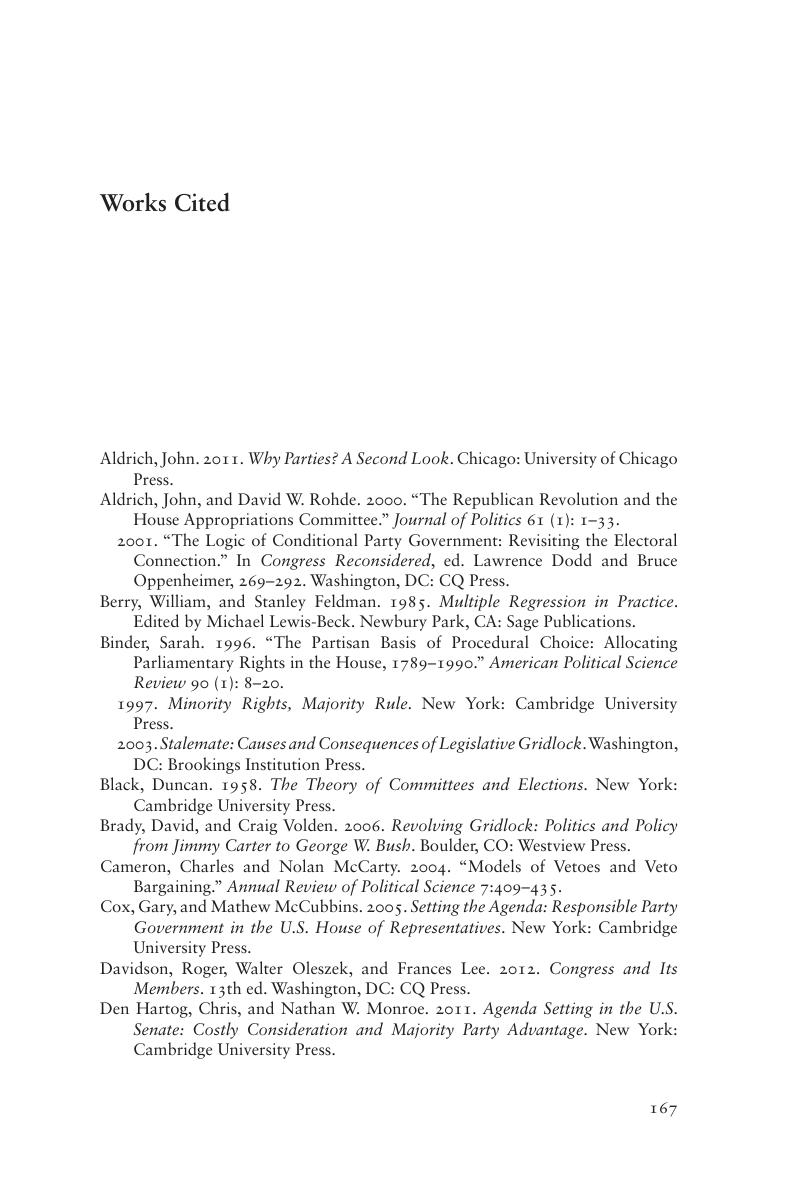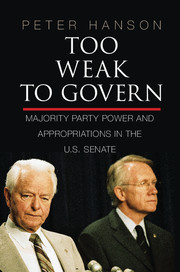Works Cited
Published online by Cambridge University Press: 05 November 2014
Summary

- Type
- Chapter
- Information
- Too Weak to GovernMajority Party Power and Appropriations in the U.S. Senate, pp. 167 - 170Publisher: Cambridge University PressPrint publication year: 2014



